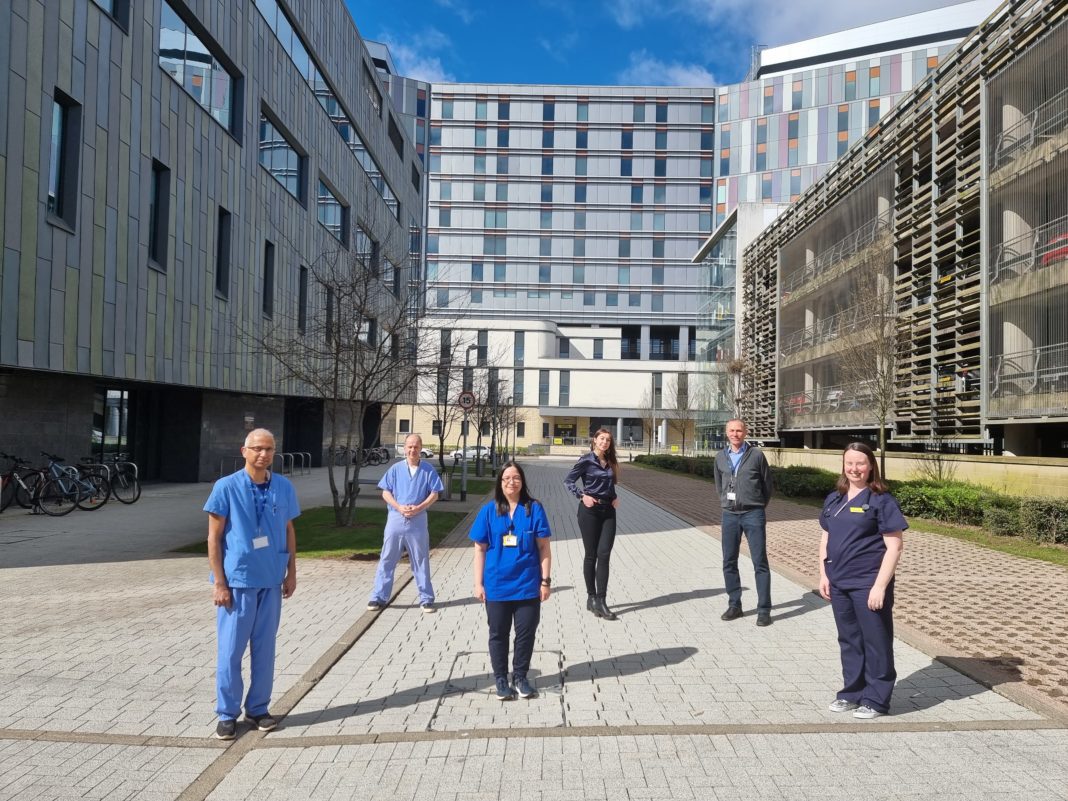A project at the University of Glasgow that is aiming to better understand the effects that COVID-19 infection has on blood vessels and blood pressure has received a grant of £250,000 from national charity Heart Research UK.
Research has shown that people who are older, obese, male or those who have other medical problems including high blood pressure, heart disease, diabetes, cancer, or chronic lung conditions, have a higher risk of developing severe COVID-19. High blood pressure is a major risk factor for cardiovascular disease and is very common with more than one quarter of adults in the UK affected.
The virus causing COVID-19 enters the body’s cells through a receptor called ACE2 which is found in the lungs, heart, blood vessels, kidneys, liver, and bowel. ACE2 is very important for maintaining many of the body’s important processes including blood pressure, inflammation, and wound healing.
COVID-19 can also cause damage to the walls of the blood vessels which makes the risk of blood clots higher and this has been seen more often in people with high blood pressure. The reasons for this are not yet known which is why we need to understand more about the links between COVID-19 and high blood pressure.
This study, which will be led by Professor Sandosh Padmanabhan, Professor of Cardiovascular Genomics and Therapeutics, aims to answer whether:
- High blood pressure makes COVID-19 infection worse and if so, why.
- COVID-19 infection makes high blood pressure worse and if so, why.
- Monitoring and management of high blood pressure need to be a greater priority during the pandemic.
The study will look at routinely collected health records for people in the West of Scotland who attended a hospital or had a positive test for COVID-19 between April 2020 and April 2021. This will be compared to the records of patients who attended hospital during 2019, for another reason. They will also look in detail at a group of people with high blood pressure.
Prof Padmanabhan’s team will also study a group of people that have recovered from COVID-19 infection. They will undergo blood pressure monitoring and tests of heart and blood vessel health. These tests will be repeated after 12 and 18 months to see if there have been any changes. They will be compared to a group of people who have not had COVID-19.
Finally, the study will look at markers in the blood (biomarkers) with the aim of identifying any which are linked with high blood pressure, cardiovascular disease, or death in COVID-19.
This study will give us a better understanding of the links between COVID-19 infection and high blood pressure, and help to improve the long-term outcomes for survivors of COVID-19. Also, the findings may lead to recommendations on the monitoring and management of blood pressure during the pandemic.
Prof Padmanabhan said: “The current COVID-19 pandemic, caused by the SARS-CoV-2 virus, has exposed unexpected cardiovascular vulnerabilities at all stages of the disease. The mechanism by which the SARS-CoV-2 virus causes the infection is believed to, directly and indirectly, affect the cardiovascular system potentially resulting in new-onset hypertension, heart failure and stroke and represents an insidious feature of long-COVID.
“The burden of hypertension as a consequence of the COVID-19 pandemic is unknown, but given the scale of the infection especially among the young, this will be a major concern for the future. In this project, we plan to generate valuable evidence that will inform hypertension management strategies and reduce the cardiovascular risk for survivors of COVID-19.”
Kate Bratt-Farrar, Chief Executive of Heart Research UK, said: “We are delighted to be supporting the work of Professor Padmanabhan and his team, who are conducting vital research into one of the biggest medical challenges the world has ever faced.
“We have known for some time that those with pre-existing cardiovascular conditions are more susceptible to developing severe complications from COVID-19. We hope that this research will help to explain why this is the case, reduce the risk for this vulnerable group and, ultimately, help to save more lives.
“Our grants are all about helping patients. They aim to bring the latest developments to those who need them as soon as possible.
“The dedication we see from UK researchers is both encouraging and inspiring, and we at Heart Research UK are proud to be part of it.”





